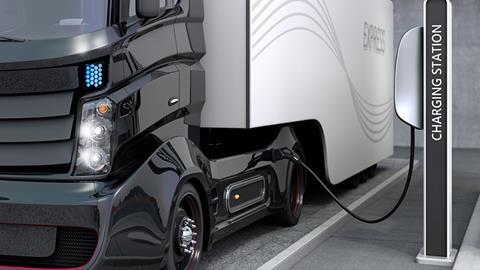RHA has welcomed research this week which shows that local authorities are accelerating investment in EV charging infrastructure, but the association is warning that much more needs to be done to provide charging infrastructure for commerioal vehicles.
The data shows that more than 120 planning applications for plug points, worth more than £500m, have been granted in the last 18 months by local authorities, equating to hundreds of thousands of new points.
Projects given the green light include £10m for a charger network across Wales and a £68m project for West Sussex council, according to an audit seen by The Times, which was produced by consultancy Barbour ABI.
The Barbour ABI audit has included completed projects as well as those approved, but yet to enter construction. Planners have approved schemes worth £60m for both Kent and Surrey county councils and the DfT has allocated £70m for sites in London.
Other local authority schemes include £3.39m for chargers in Staffordshire, £5m for Edinburgh, £6.7m for Hertfordshire and £6.6m for Hampshire County council.
RHA senior policy lead, Chris Ashley, said: “Lack of charging infrastructure is a major blockage preventing the rapid introduction of electric vehicles, with the problem being particularly acute for commercial vehicle operators.
“We call for local authorities and the energy companies to ensure infrastructure for vans, lorries and coaches is urgently prioritised.
“With latest EV van sales static at 6.3% of overall van sales, practical measures are needed to ensure vans can access the public car EV network; for example, removing height barriers so that vans can access dedicated charge points in car parks.
“When 8,200 charge points at 3,000 locations are needed for lorries by 2030, having just one public HGV charging point at the M61 Rimmington Services is not good enough.
“Urgent action is needed to speed up both planning applications for HGV and coach recharging hubs and connections to the National Grid.”

















